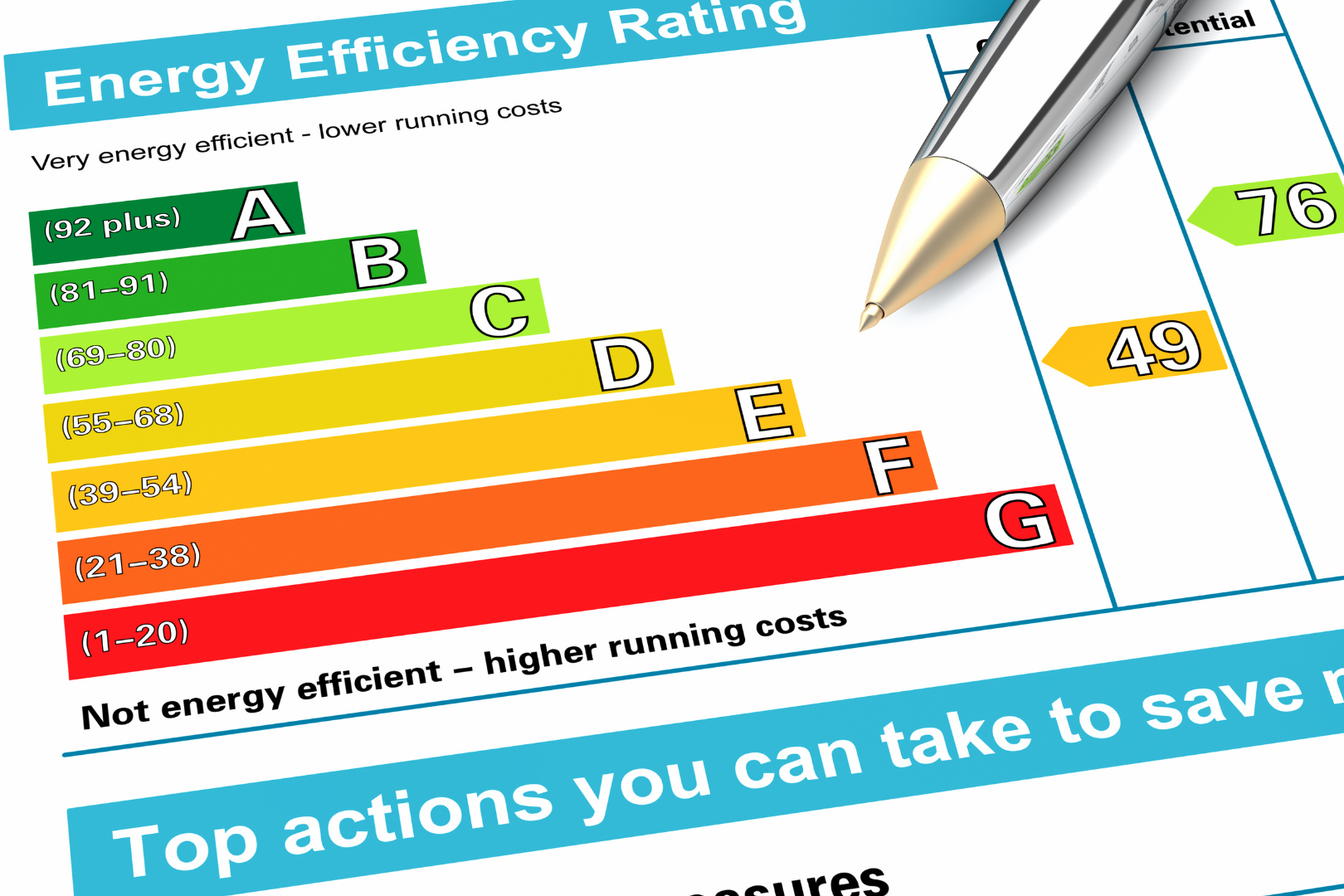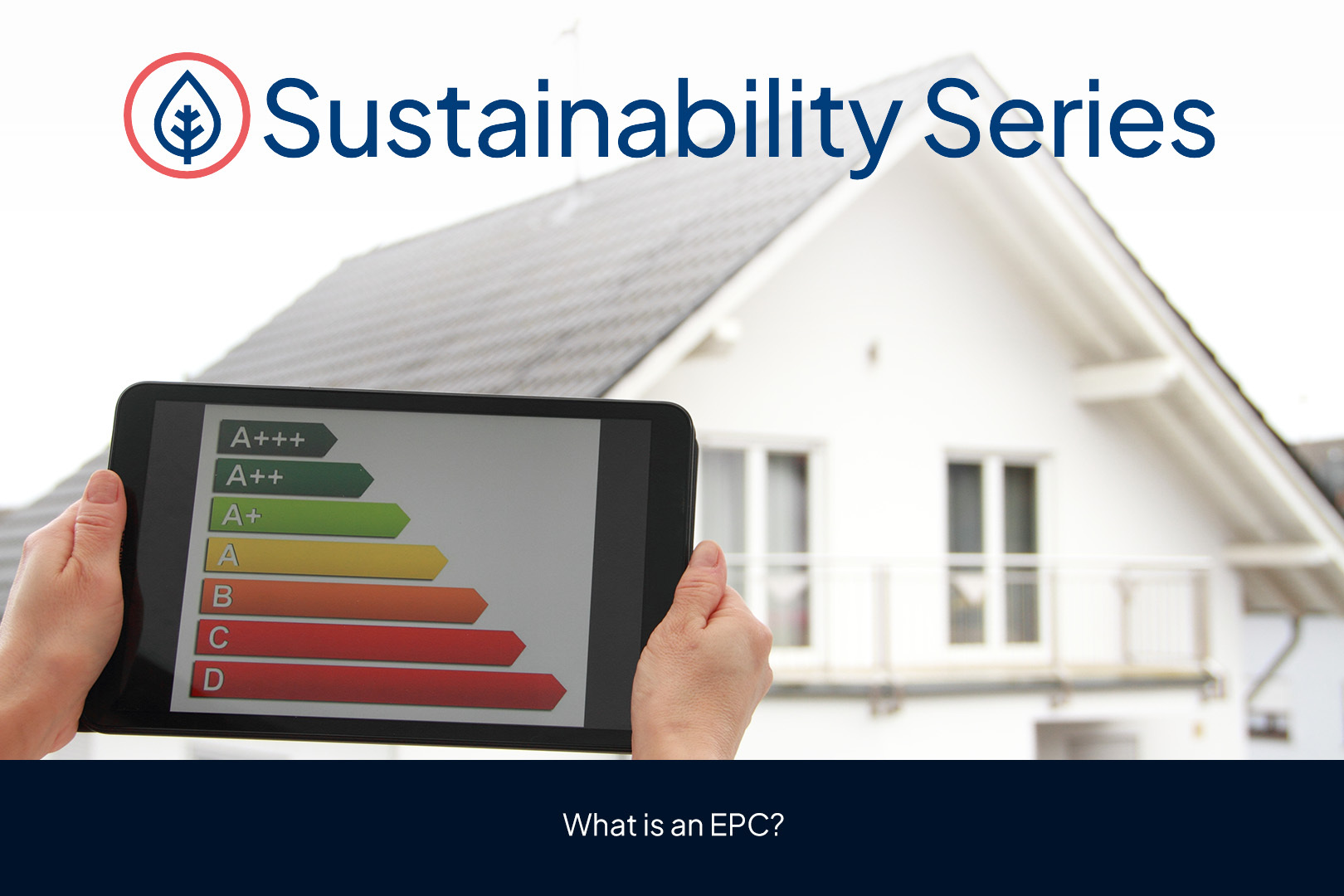As part of our sustainability series, we’re outlining what an Energy Performance Certificate (EPC) is and why it’s important.
An EPC is required for most residential UK properties and gives a property an energy efficiency rating. This rating can range from A (most efficient) to G (least efficient).
If you’ve been looking for your next property, its likely you’ll recognise an EPC for its distinctive coloured chart which can be included as part of the images of some property listings. The coloured chart of an EPC represents an A rating as green and a G rating as red.

EPCs last for 10 years and as well as highlighting a property’s energy efficiency rating, they provide information about a property’s energy use, typical energy costs and ways to reduce energy use.
The higher the EPC rating, the more energy efficient a home is which means fuel bills are likely to be lower. In England and Wales, the average energy efficiency rating for a home is band D.
Alongside providing annual estimates into how much it would cost to heat, light and provide hot water to a home, an EPC also reports on the carbon emissions for a property and its impact on the environment. Recommendations on how to improve energy efficiency are also included, but there are some simple things you can do to reduce your energy usage and energy bills such as switching off electrical appliances instead of leaving them on standby and fitting draught excluders to keep the warmth in.
If you’re hoping to sell your property, it’s essential you have a valid EPC for your home. Should you need an updated EPC, instruct a qualified Domestic Energy Assessor to assess your property and produce the certificate for you before you put your home on the market.
To make sure you’ve got all the necessary information in order ahead of selling your property, including your EPC, take a look at our guide to the essential documents you need when selling a home in the UK.
As a buyer, you should request to see the EPC for any property you’re interested in purchasing as it’s a legal requirement for most residential properties to have one. There are however some exceptions which mean certain types of property don’t need an EPC, including places of worship, listed buildings, and temporary structures. In any case, to be sure, it’s best to speak to a professional to determine whether your property might be exempt from needing one.
For more details on EPCs, you can visit the full government guide.






